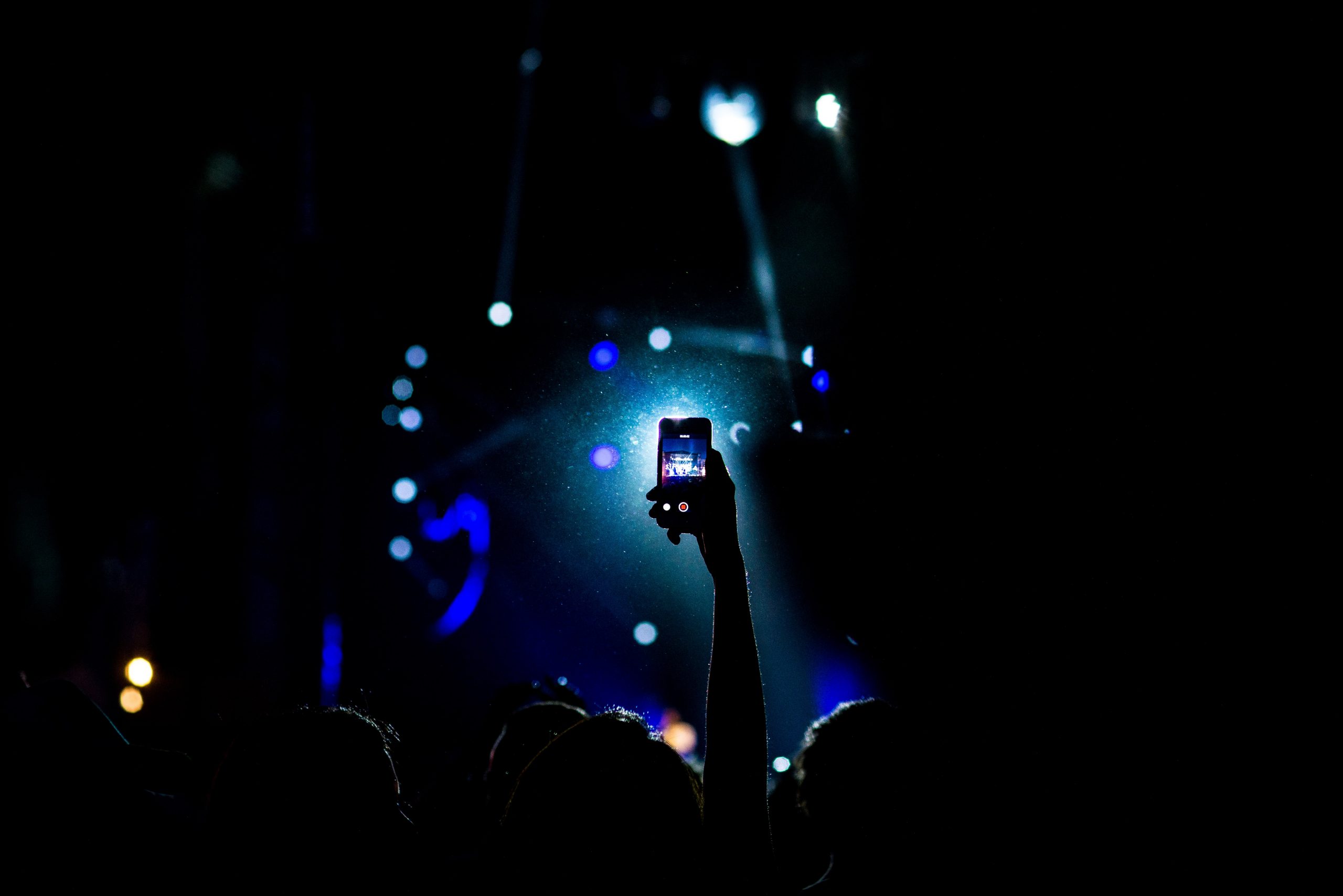Games and music have been intertwined for decades, arguably stretching back as far as 1951, when mathematician Christopher Strachey programmed a Ferranti Mark 1 computer to play a snatch of ‘God Save The Queen’.
(Arguably because, as this BBC news report explains, recollections differ on whether it played the music at the end of a draughts game also written by Strachey for the computer, or as a standalone music program.)
The 1980s and the era of 8-bit computers and consoles was when game soundtracks really became a thing, not to mention a flourishing scene of electronic music sparked by the Commodore 64’s SID [Sound Interface Device] chip.
There were also some early experiments with games based on music or musicians: 1985’s Frankie Goes to Hollywood and Give My Regards to Broad Street – the latter based on Paul McCartney’s film of the same name.
Since then, game soundtracks have got ever richer and more ambitious; Sony made club culture the heart of its marketing for the original PlayStation console (spearheaded by Wipeout); and we have had several waves of music rhythm games. Parappa the Rapper; Dance Dance Revolution; Rock Band and Guitar Hero; through to the mobile success of Tap Tap Revenge in the early days of the app stores.
Today’s Trends
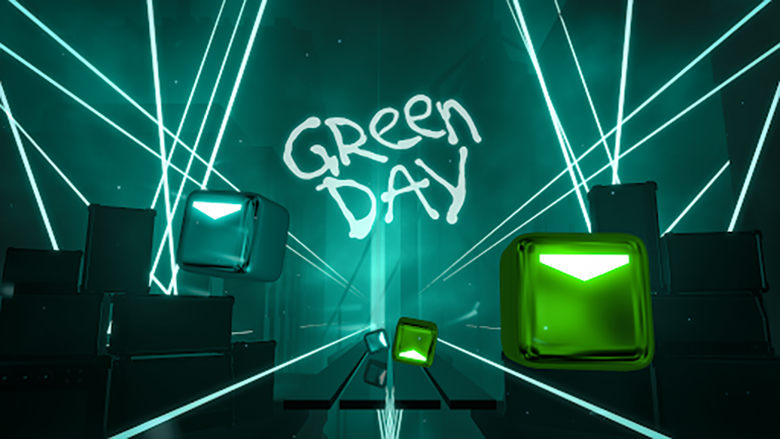
Some of today’s trends continue in that lineage. The Rock Band and Guitar Hero model lives on – minus the plastic instruments – in virtual reality games like Beat Saber.
More than 4 million copies of the block-swiping game had been sold by February this year, and its developers – now owned by Facebook – have worked with artists including Green Day, Linkin Park and BTS to sell track packs, complete with customised levels. It had sold more than 40m songs by February 2021.
Meanwhile, there has also been a flurry of VR apps that are part game, part fitness workouts. Supernatural in the US and FitXR in the UK are two examples, and both are licensing music from artists and record labels to accompany their exercises.
Some labels are working hard on partnerships with games developers and games-related platforms. Electronic music label Monstercat is one of the best examples. It has put its music in games from Rocket League to the hyper-casual mobile music games from Vietnamese firm Amanotes.
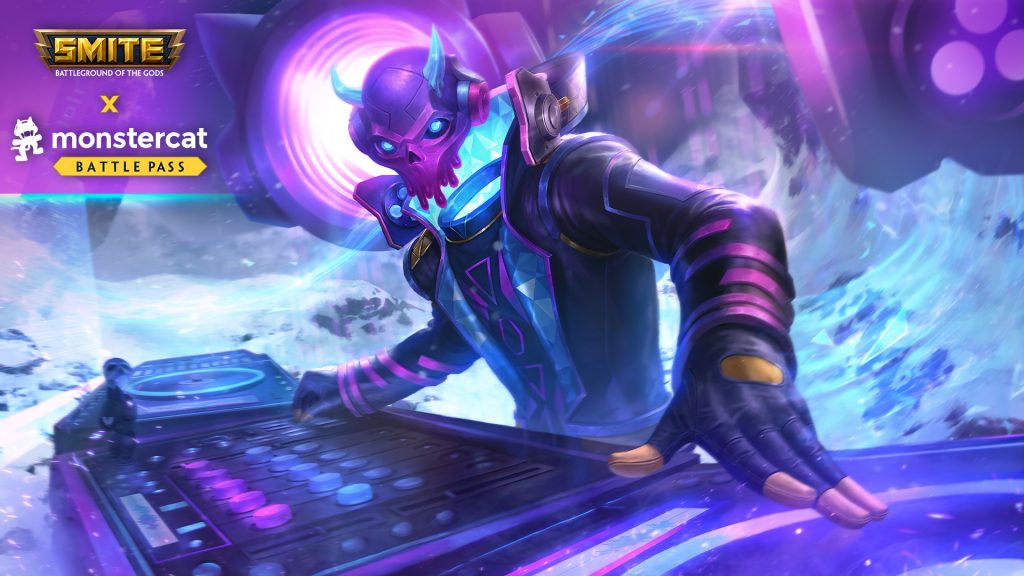
In fact, Monstercat was closely involved in the recent music-themed second season of Rocket League, making a new track available in the game. The label also launched its own battle pass in MOBA game Smite, with themed skins and tracks. Monstercat is also part of Twitch’s ‘Soundtrack’ feature that offers a library of music for game streamers to use, free from fears of copyright strikes.
The idea of artist-branded games lives on too. K-Pop stars BTS launched their BTS World mobile game in 2019, and followed it up with BTS Universe Story – actually more of a fan-fiction story-making tool – in 2020. Both were partnerships with mobile games firm Netmarble. BTS’s management company has even acquired a mobile games developer, Superb, to explore more opportunities.
Iron Maiden’s Legacy of the Beast game launched in 2016, and continues to be updated to this day; Queen recently got their own Tap Tap Revenge-style Queen: Rock Tour game from mobile publisher Gameloft; and since his death, Swedish artist Avicii’s music has been central to not one but two games: 2018’s Gravity HD and 2020’s Beat Legend: Avicii. Most recently, rock supergroup the Dead Daisies unveiled a retro first-person shooter, Daisy’s Revenge, to promote their new album.
During the Covid-19 pandemic’s shutdown of live music across the world, games have also emerged as powerful performance spaces for musicians. Rapper Travis Scott drew 27.7 million fans to his Fortnite concert in 2020, while Lil Nas X pulled a crowd of 33 million for his Roblox gig later that year.
Roblox has been particularly keen to get more musicians to perform concerts and hold Q&As with fans on its platform, teaming labels up with its developers to create dedicated spaces for these virtual events – complete with merchandise. Warner Music Group, one of the three major labels, is also an investor in Roblox.
Not every musician involved with gaming is human. Riot Games, the publisher of League of Legends, has made a habit of creating its own avatar music stars. It launched virtual pop group K/DA with a spectacular AR/hologram performance at its World Championship in 2018, and has since followed up with the more hip-hop focused True Damage.
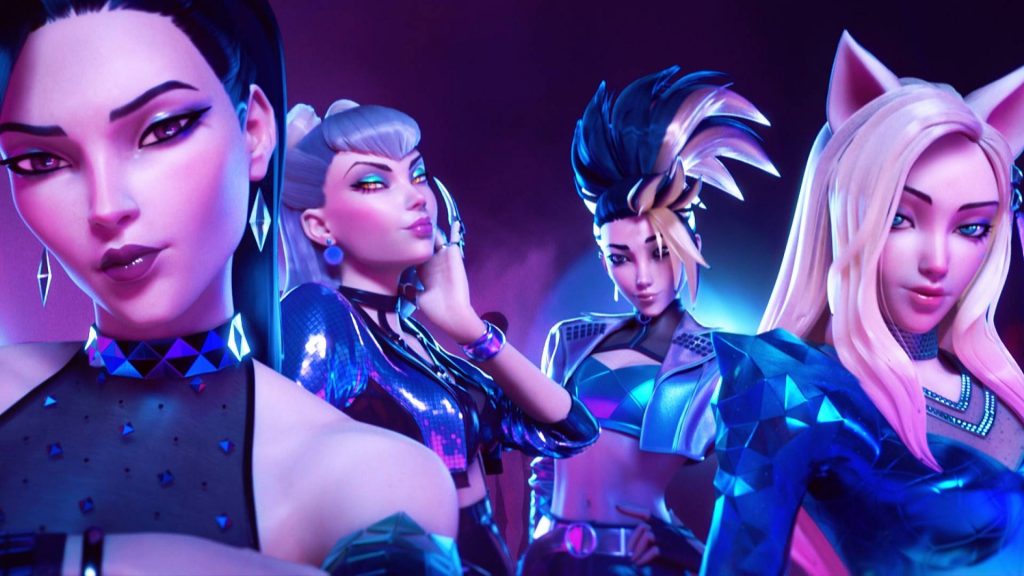
There’s also a wider cultural crossover between music and esports that has seen Riot Games launch League of Legends podcasts with Spotify; artists like Drake and The Weeknd investing in esports teams; and new record labels like Offmeta founded specifically to get its artists involved with esports events.
Where might all this lead to next? The music industry is getting rapidly up to speed with the concept of the metaverse – one of its top law firms recently published a guide on the topic – and is keen to make sure that whenever people are spending time in games and virtual worlds, there are opportunities for them to listen to music and interact with musicians.
Fortnite already has its ‘Main Stage’ in its Party Royale mode as a place to see DJ sets and music performances, while Grand Theft Auto V – already a pioneering series in its use of music for its in-game radio stations – opened an in-game nightclub with sets from real DJs. Expect plenty more examples of this to come. Rockstar Games has also just co-founded a record label with dance music events firm CircoLoco.
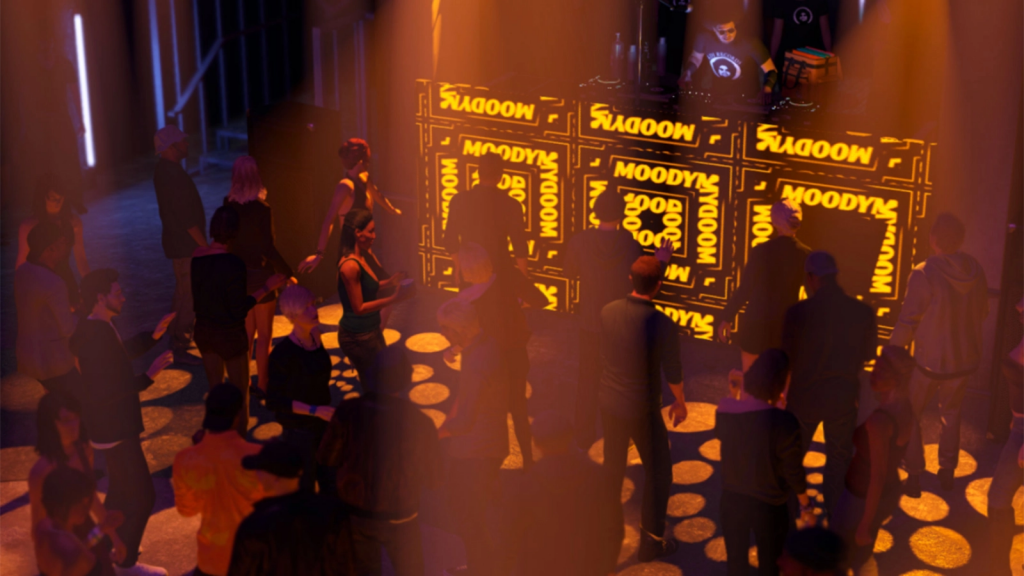
While more music artists will launch their own experiences on platforms like Roblox, what’s just as interesting – and perhaps has even more potential – will be finding ways to let fans build games and virtual spaces using those artists’ music and visuals.
This will need proper licensing deals in place, and that’s something that can be challenging, in terms of finding deals that work for both sides, and of games companies understanding what needs to be licensed and who from.
(In short: it’s not just ‘music from record labels’, it’s a range of different rights including recordings, publishing, performance and/or image rights, from various rightsholders including labels, publishers, collecting societies and the artists themselves.)
Meanwhile, there’s also a fascinating future of crossover between games and music creation tools. Splash is one of the best examples so far. It started as a mobile app, then was turned into a Roblox game which has been played tens of millions of times.
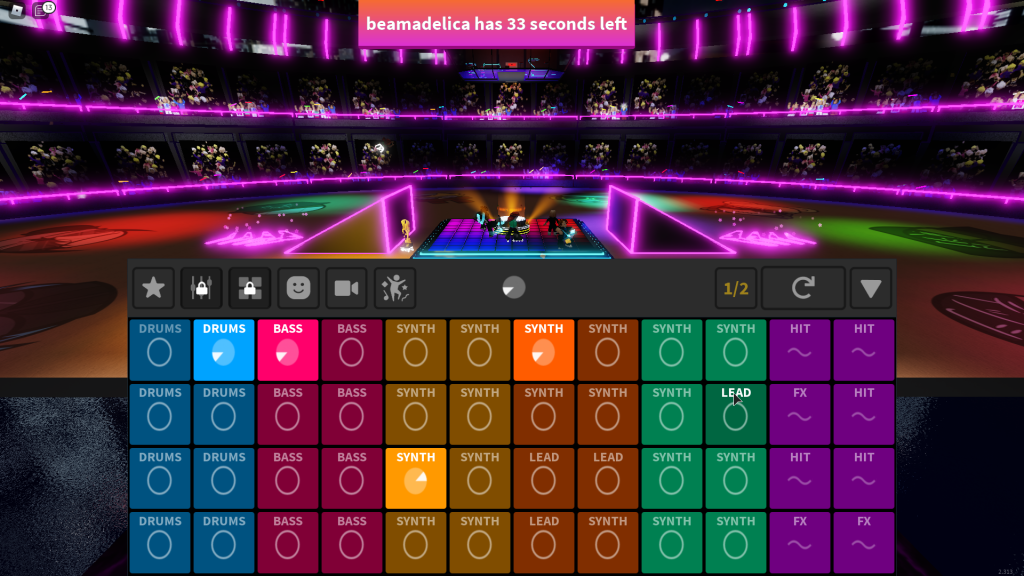
It gets people to create music by tapping buttons to trigger loops, beats and effects. Oh, and all of those sounds were created by an AI system built by Popgun, the startup behind it. Millions of children have been turned into AI music-makers!
That brings us to to a final point about games meeting music: these industries have a number of mutual interests when it comes to new technologies – from AI creativity to NFTs/blockchain and virtual reality – and a lot of potential to collaborate and learn from one another.
Metaverse milestones
1995
Sony’s futuristic racing game Wipeout makes waves with a soundtrack featuring the likes of Orbital, Leftfield and the Chemical Brothers, as the PlayStation marketing campaign taps into club culture.
1999
The first GuitarFreaks game is released in Japan, closely followed by DrumMania. Their use of controllers to ‘play’ guitar and drums would be a key influence on the later Guitar Hero and Rock Band series in the west.
2008
Mobile developer Tapulous releases its first Tap Tap Revenge game for iOS, adapting the Guitar Hero rhythm model for touchscreen taps. The company would release four in the main series (plus some artist-focused spin-offs) before being acquired by Disney.
2013
Rockstar Games launches Grand Theft Auto V, with the biggest cast yet of licensed music tracks to listen to as you speed around San Andreas – curated in the game’s radio stations. The game’s online mode would later open its own nightclub with real DJs playing sets.
2020
Rapper Travis Scott plays a concert – actually a pre-recorded motion-captured performance – within Fortnite as a special event. 12.3 million fans attend the first night, and 27.7 million over the multiple repeats that weekend.
Key Companies
Amanotes
Vietnamese mobile games developer that has a popular range of ‘hyper-casual’ games, several of which are based around music.
Epic Games
The maker of Fortnite, which has been increasingly active in music with the game’s Main Stage venue, and performances from artists.
Harmonix
One of the original movers and shakers in the music games world, still going strong with its latest game Fuser, focusing on electronic music.
Monstercat
And talking of electronic music… Monstercat is an innovative dance label that has worked with a number of games, including Rocket League.
Netmarble
The mobile games firm otherwise known as K-Pop stars’ BTS’s partner of choice for the band’s BTS World and BTS Universe Story titles.
Offmeta
A record label founded specifically to explore partnerships between the music and esports world, signing artists and promoting them at pro gaming events.
Popgun
Australian startup that developed an AI capable of composing and playing music, then got it to create lots of beats and loops for its Roblox game Splash.
Riot Games
The developer of League of Legends, but also a bona-fide incubator of virtual artists: K/DA and True Damage, whose music is released commercially.
Roblox
Roblox appointed a head of music in 2020 to seek partnerships with labels and artists. It has since hosted events with the likes of Lil Nas X, Zara Larsson and Ava Max.
Further Exploration
- Music Ally’s games coverage – Music industry publication’s stories about the crossover of games and music.
- Esports Observer’s music coverage – In similar vein, this esports industry site’s coverage of music partnerships.
- 100 Games: the evolution of game music – One violinist takes on the soundtracks of 100 games in this marvellous video.
- The history of music games – IGN’s take on the music games that struck the right tune down the years.
- Composing Classics – A fun exhibit in the Google Arts & Culture website looking back at video game music.
- The fantastic history of rhythm games – A great wander down memory lane of the blog of music-making service Splice.
Brian has been working in the games industry since the mid-1990s, when he joined the legendary studio DMA Design, as a writer on the original Grand Theft Auto. Since then he's worked with major publishers, founded his own digital agency, and the Scottish Games Network. At various times he's worked as a journalist, editor, narrative designer, lecturer, executive producer, and director.



























